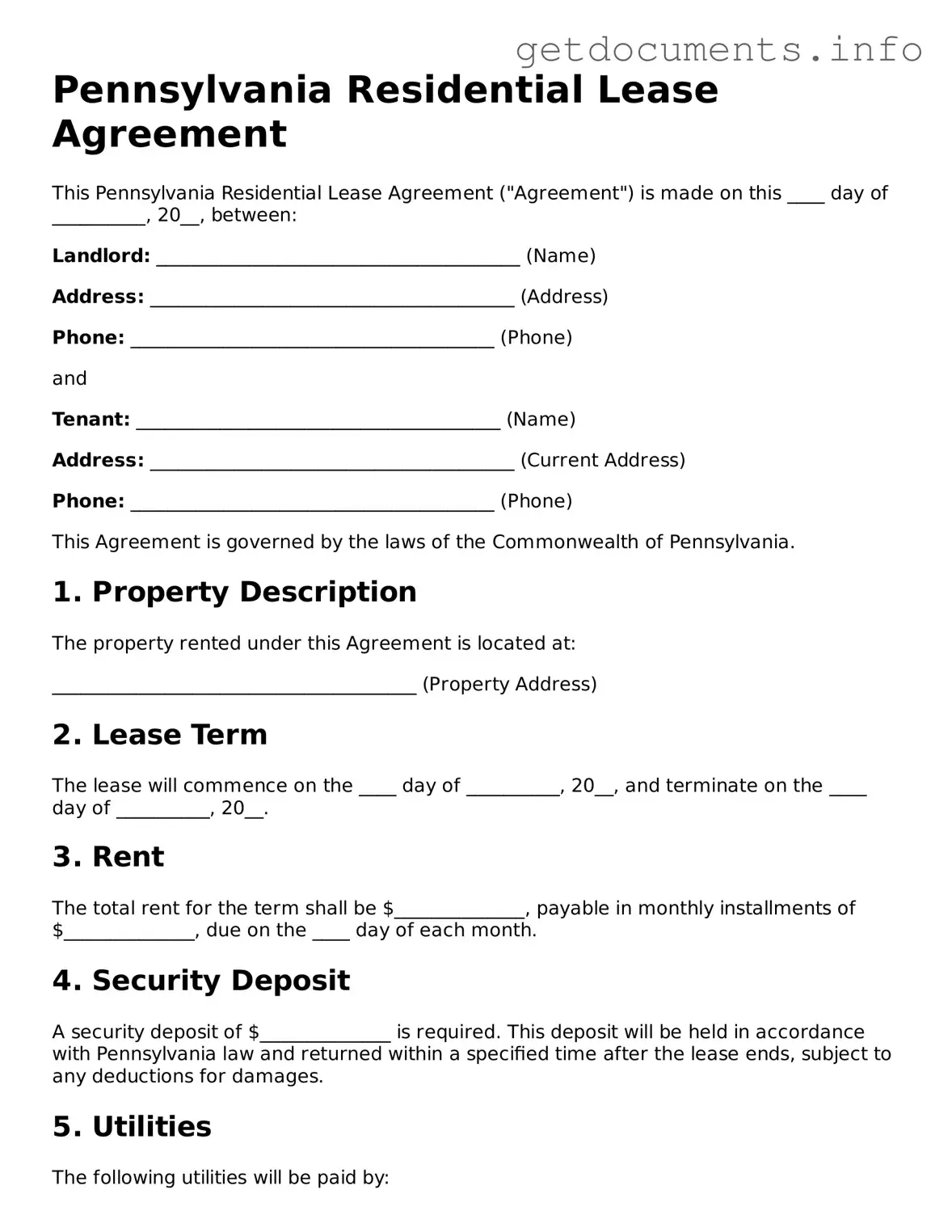Free Lease Agreement Template for Pennsylvania
A Pennsylvania Lease Agreement form is a legal document that outlines the terms and conditions between a landlord and a tenant for renting a property. This form is essential for protecting the rights of both parties and ensuring a smooth rental experience. To get started, fill out the form by clicking the button below.
Access Lease Agreement Editor

Free Lease Agreement Template for Pennsylvania
Access Lease Agreement Editor
Got places to be? Complete the form fast
Fill out Lease Agreement online and avoid printing or scanning.
Access Lease Agreement Editor
or
⇩ PDF File
